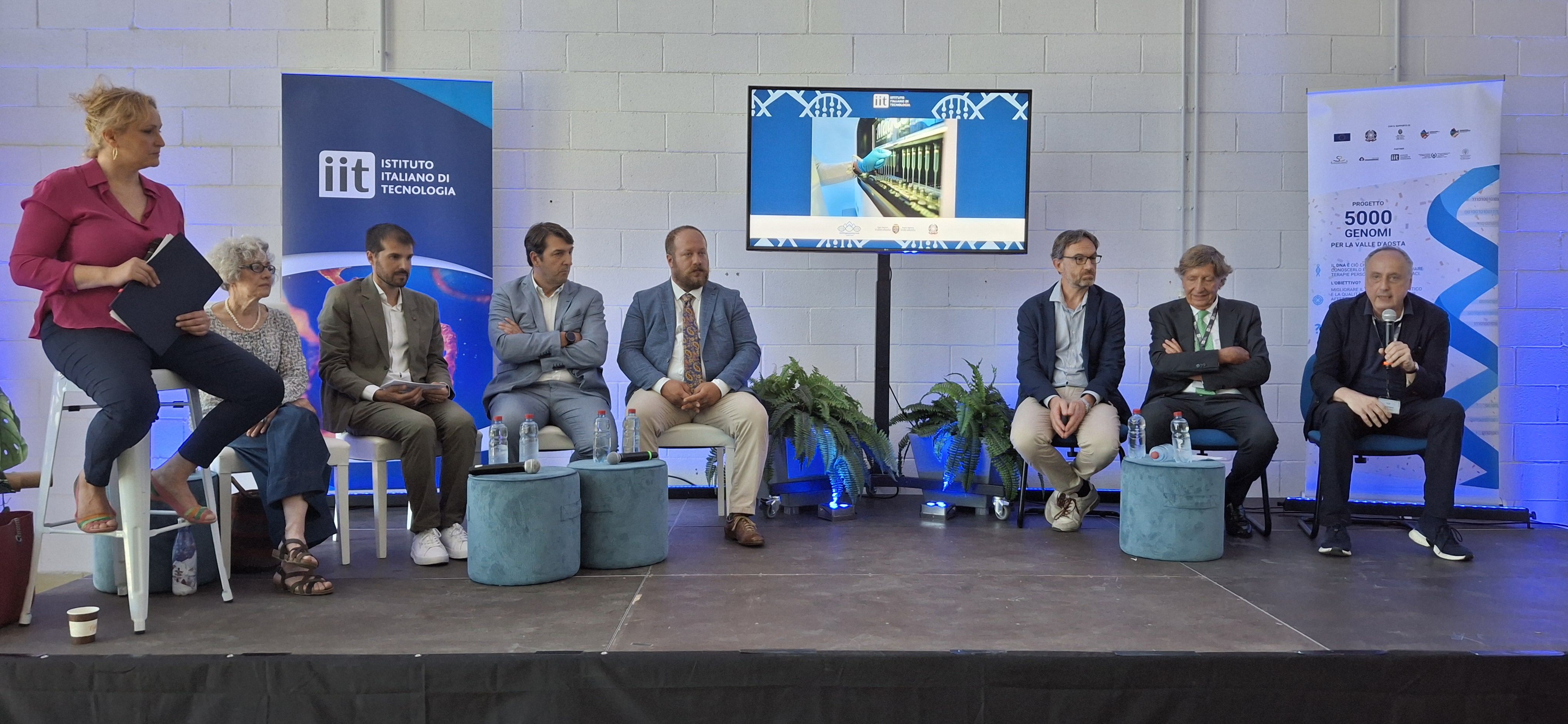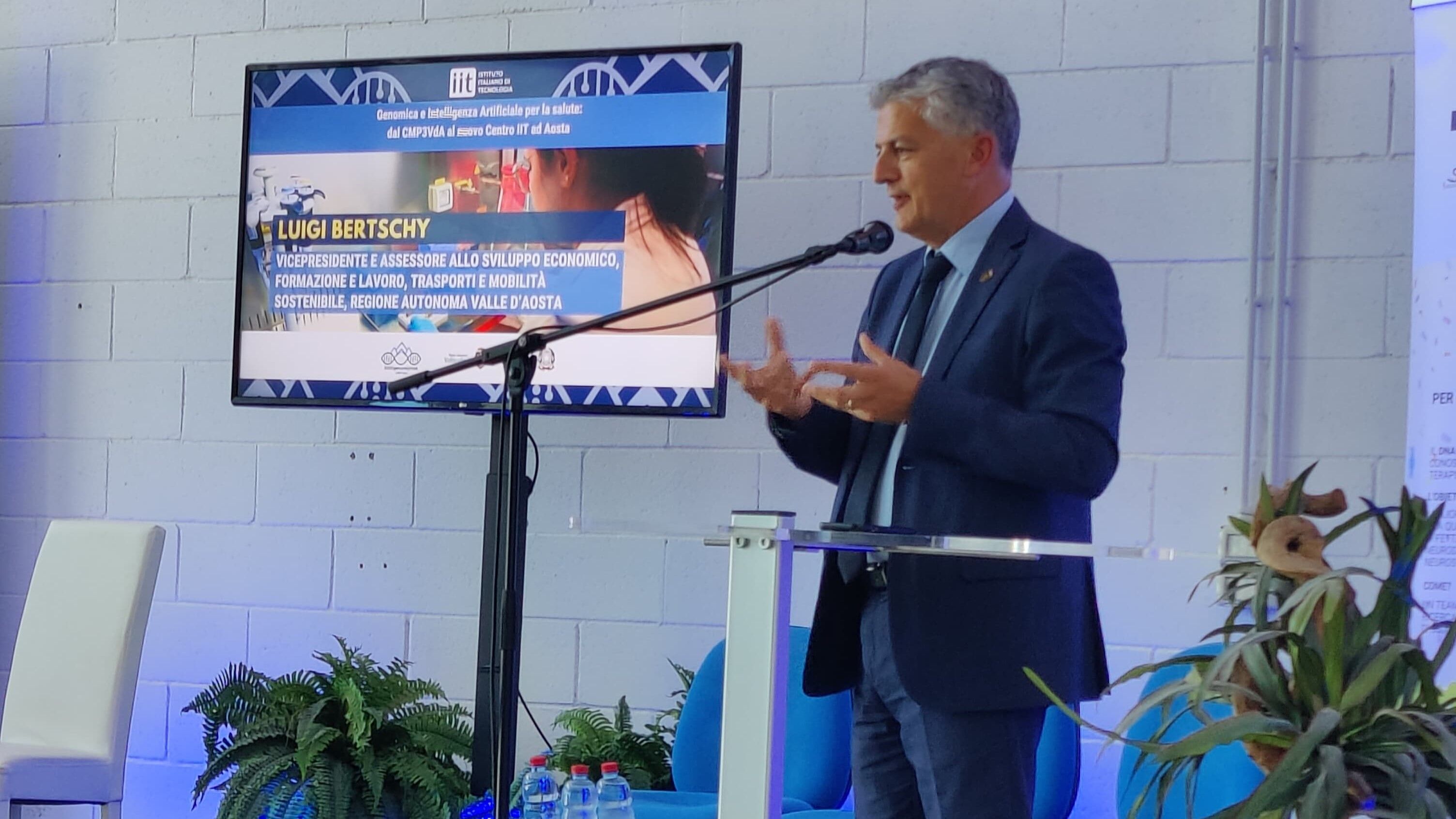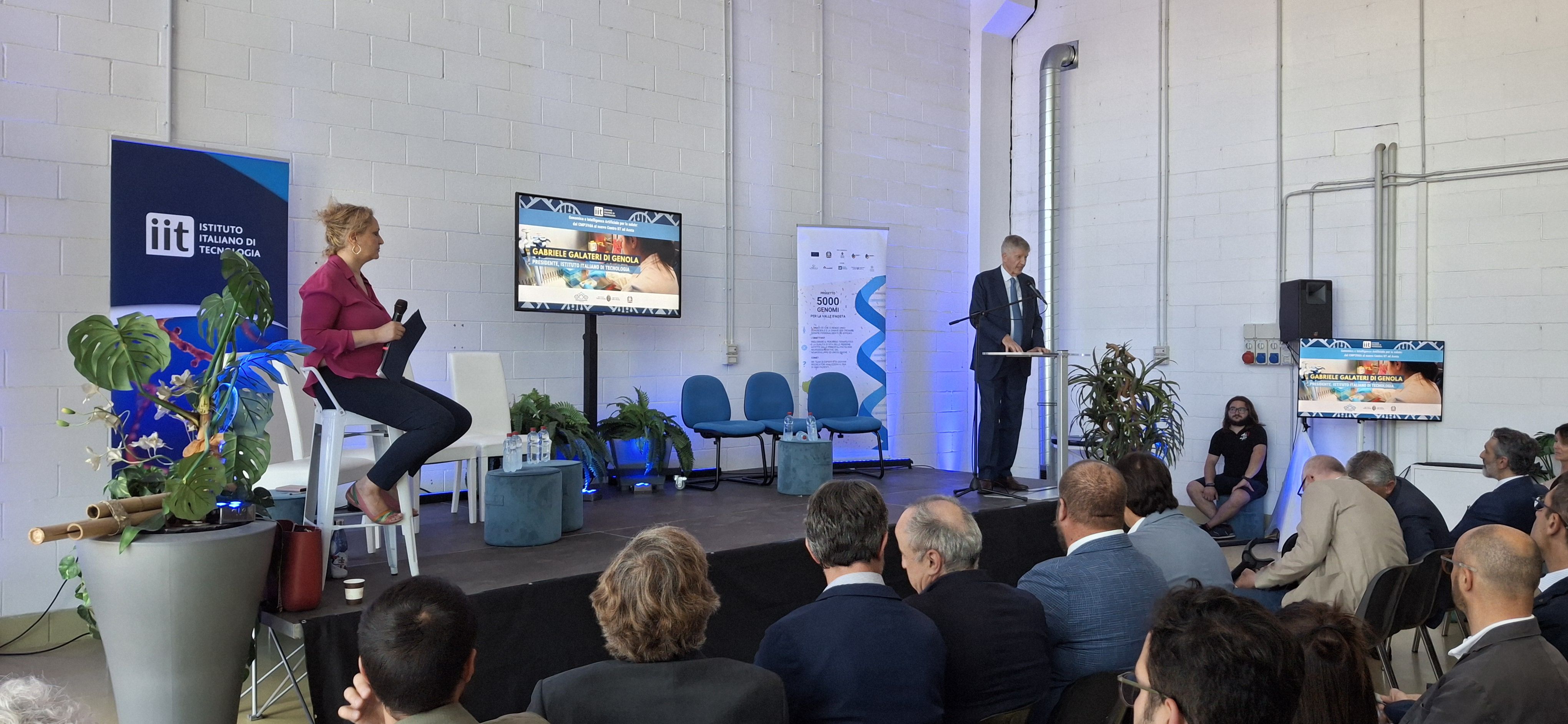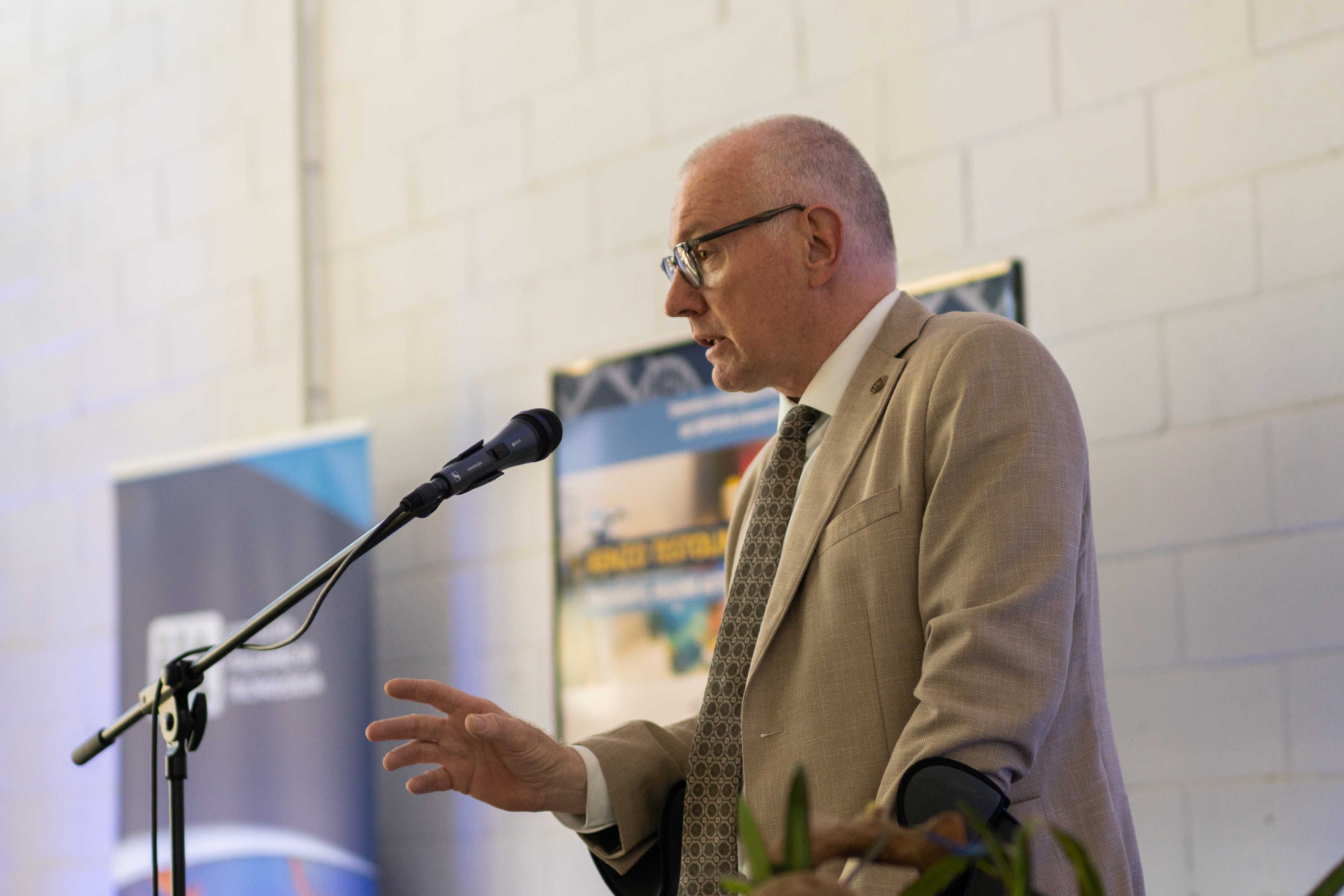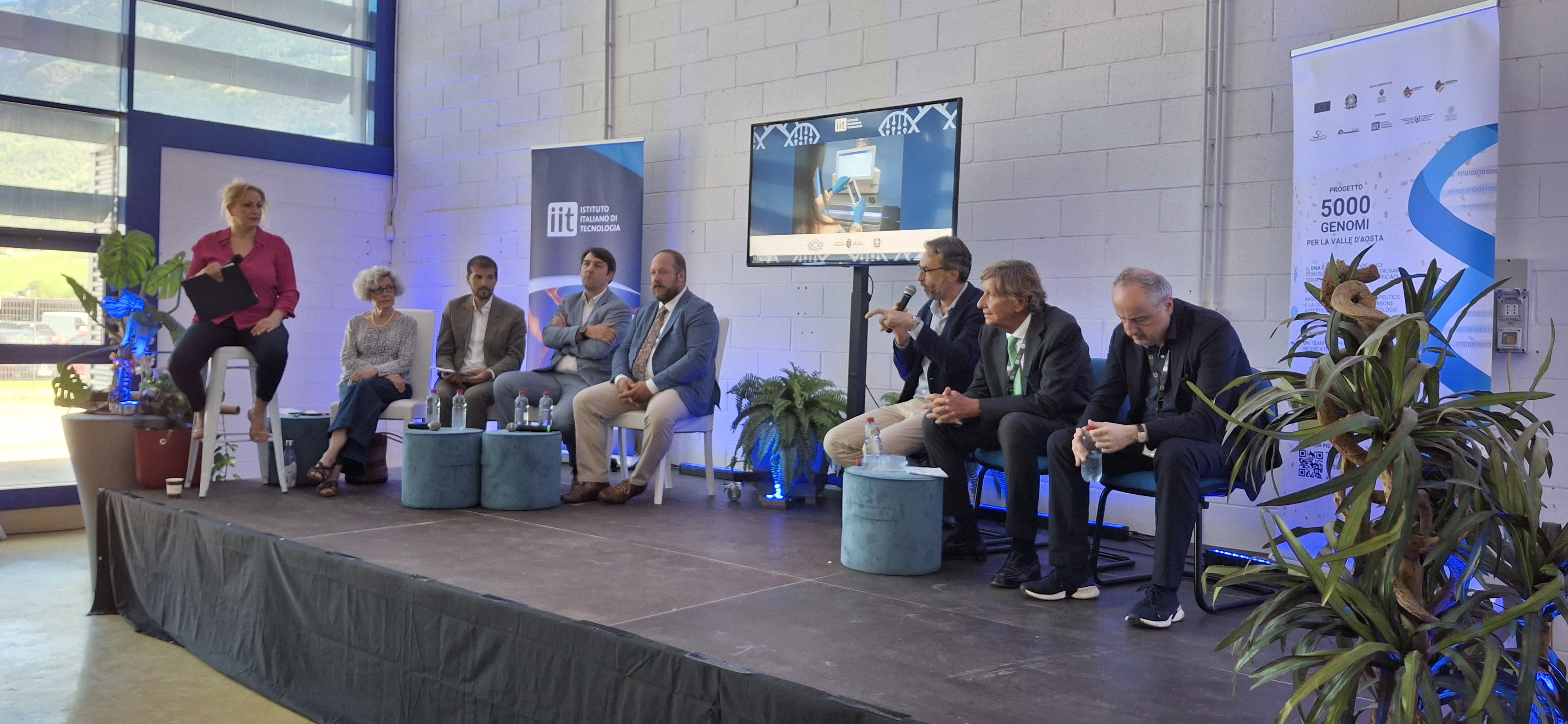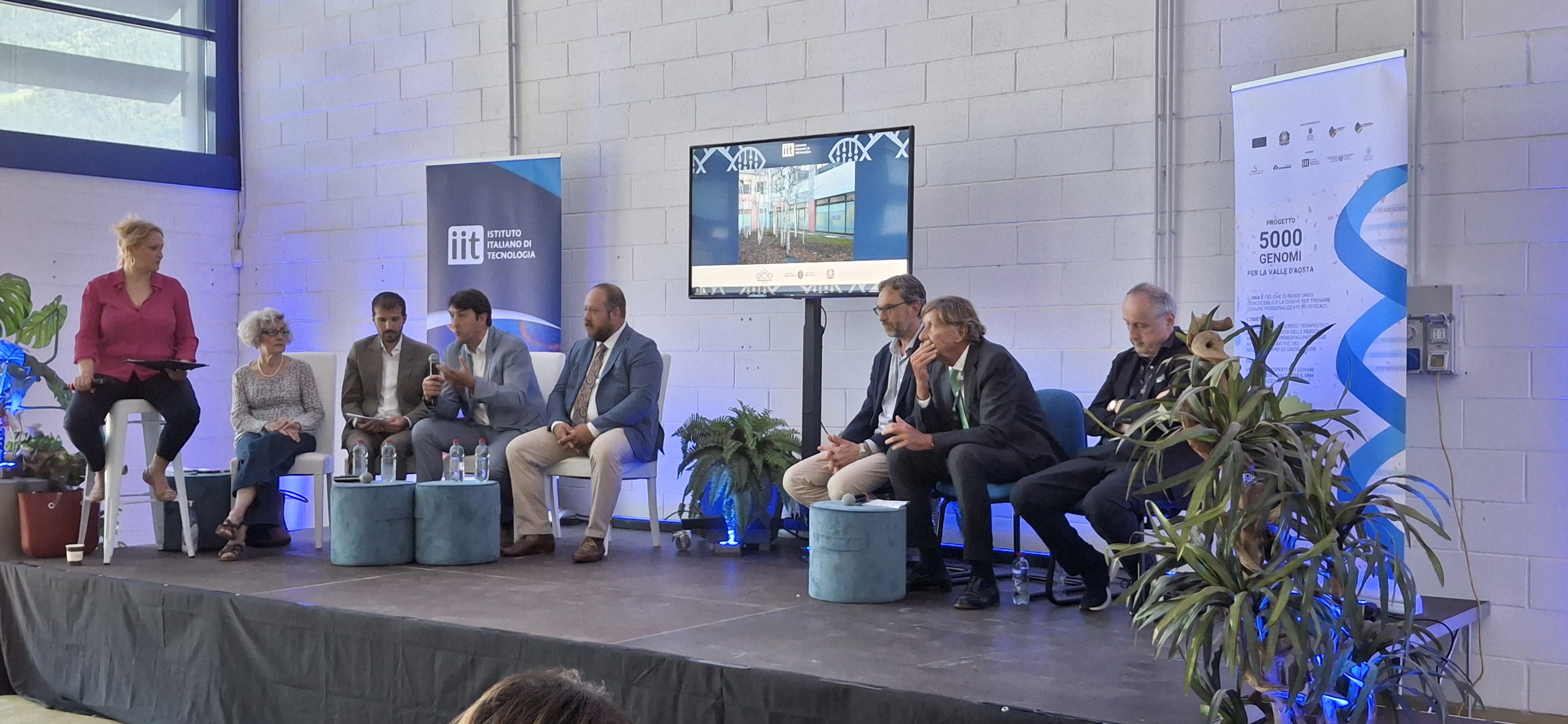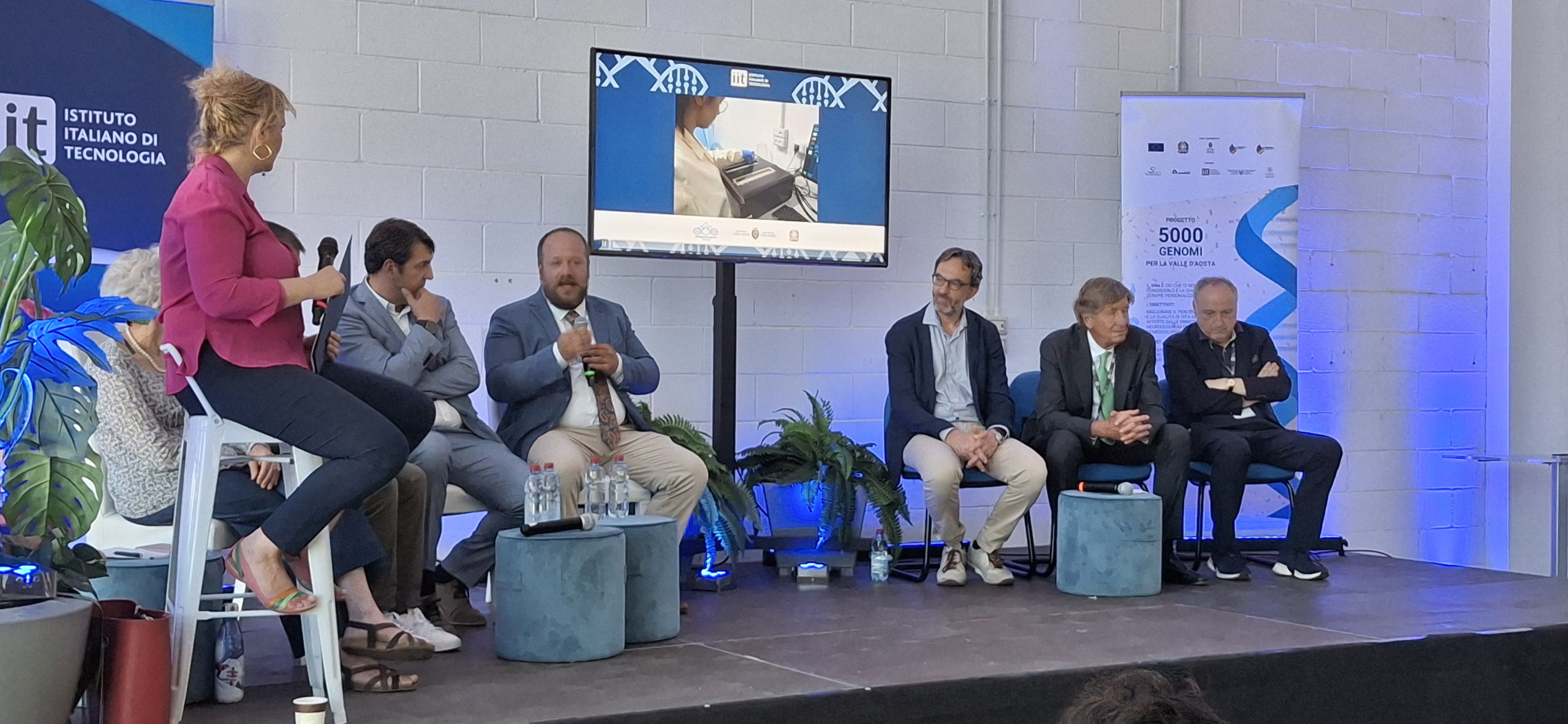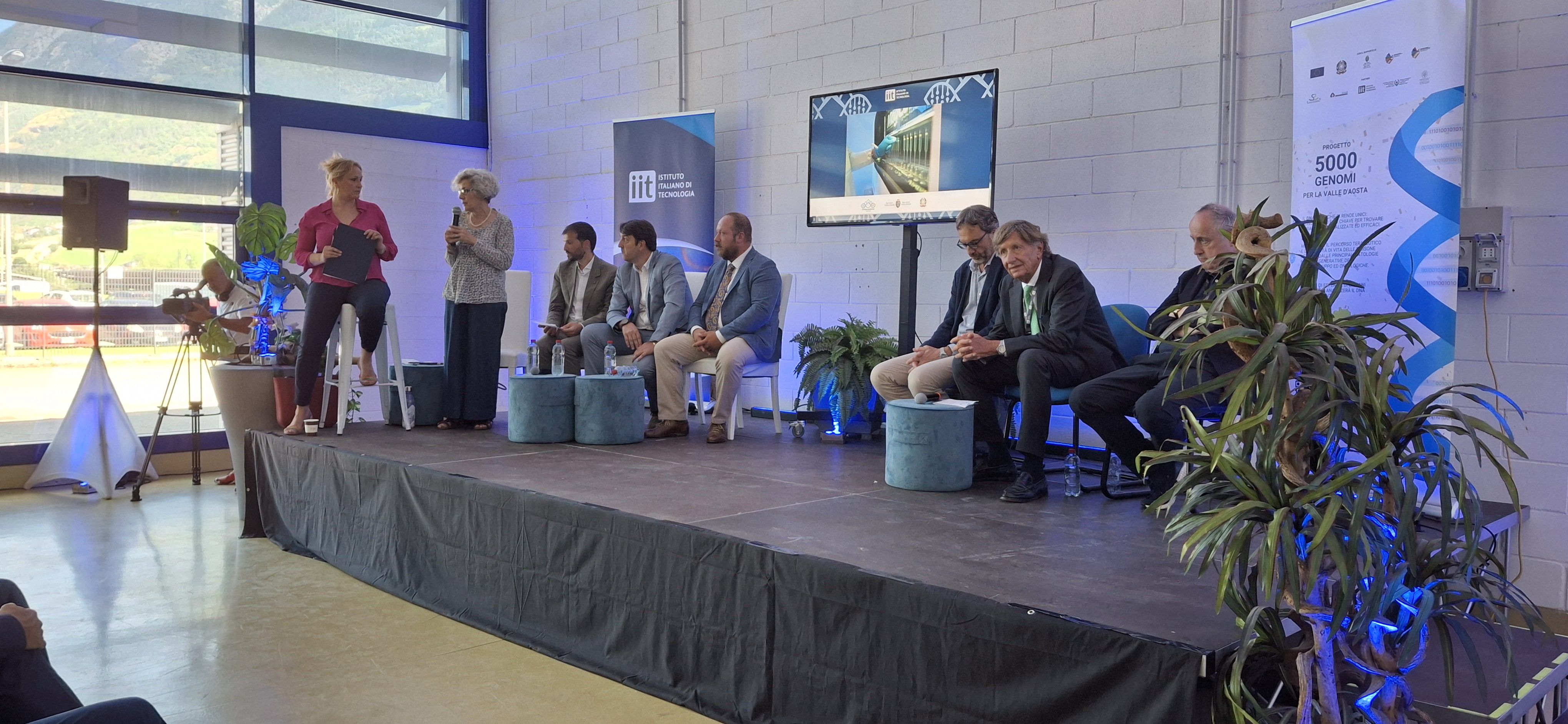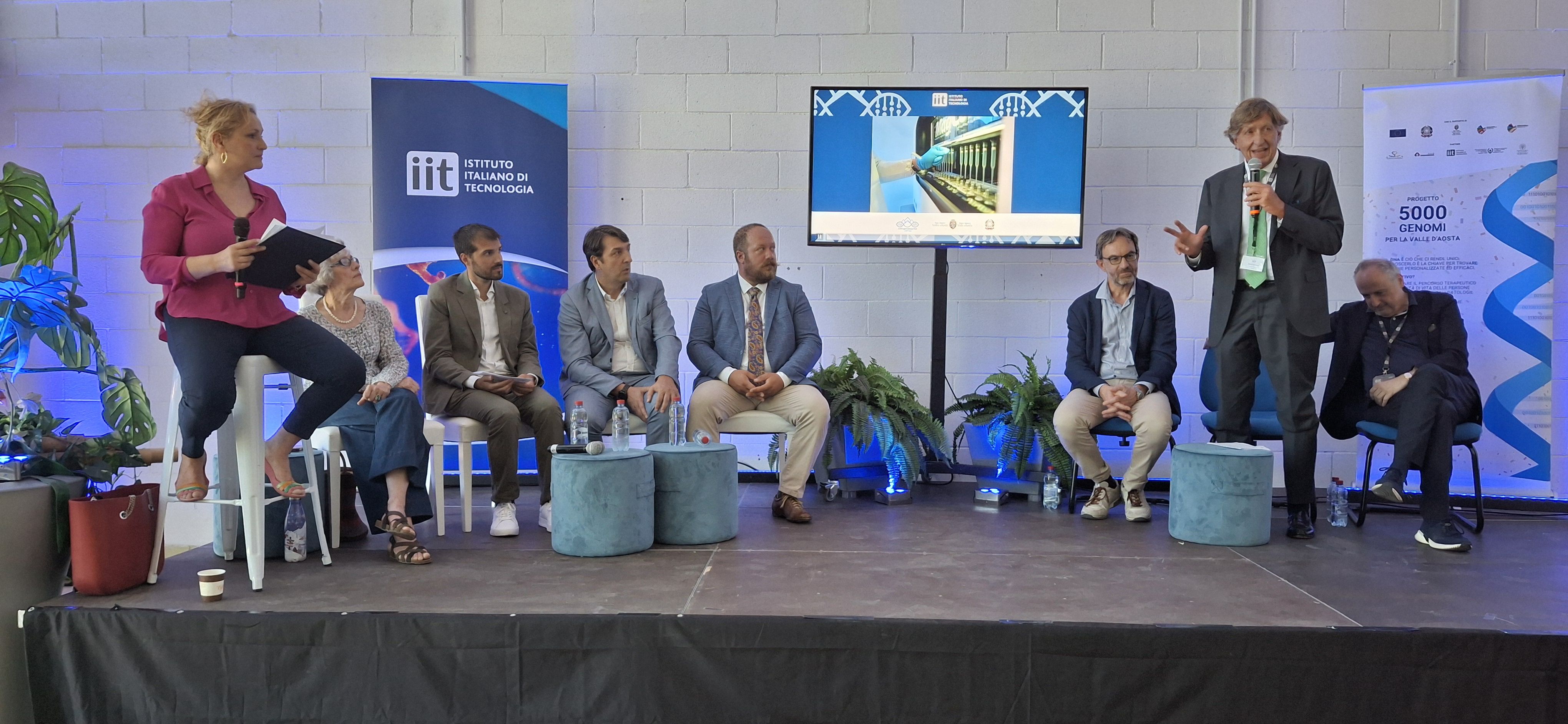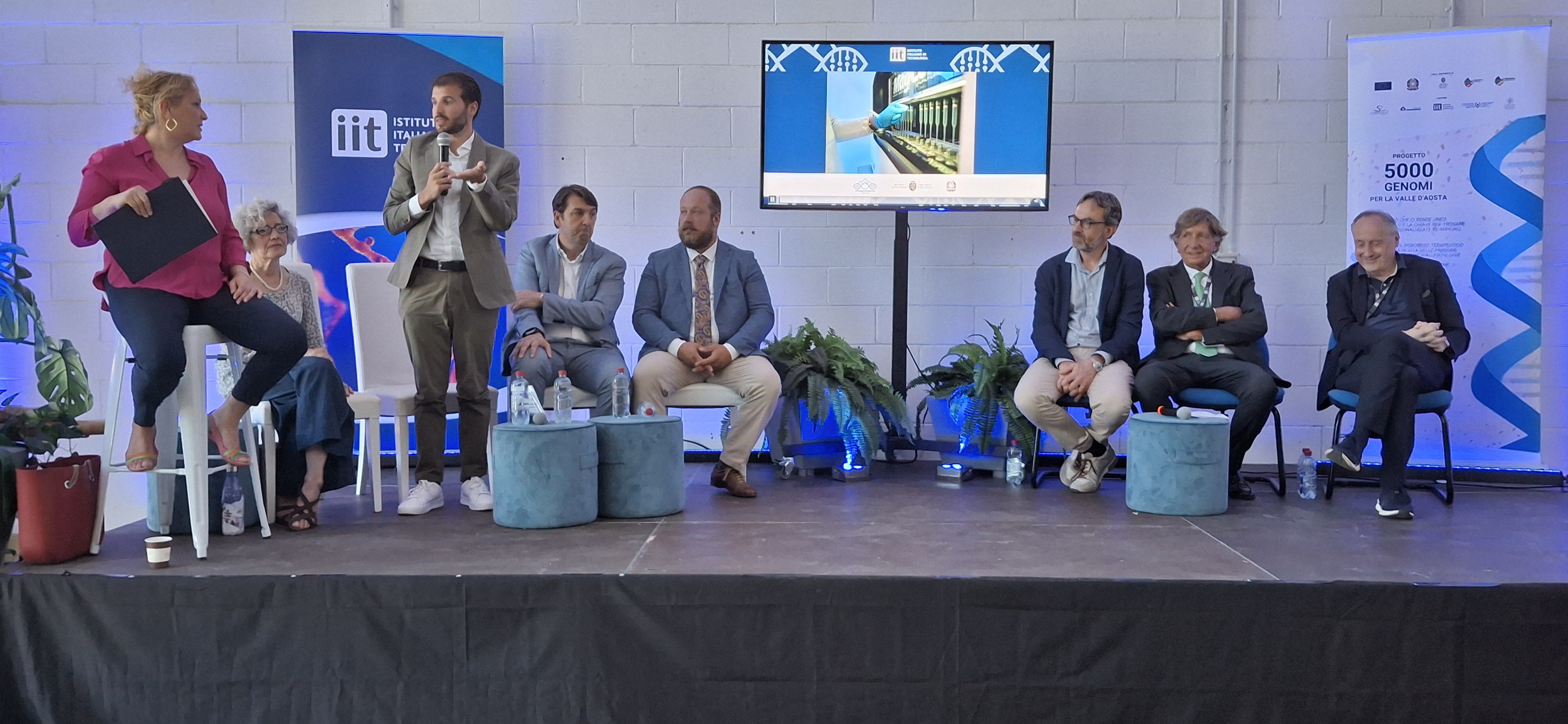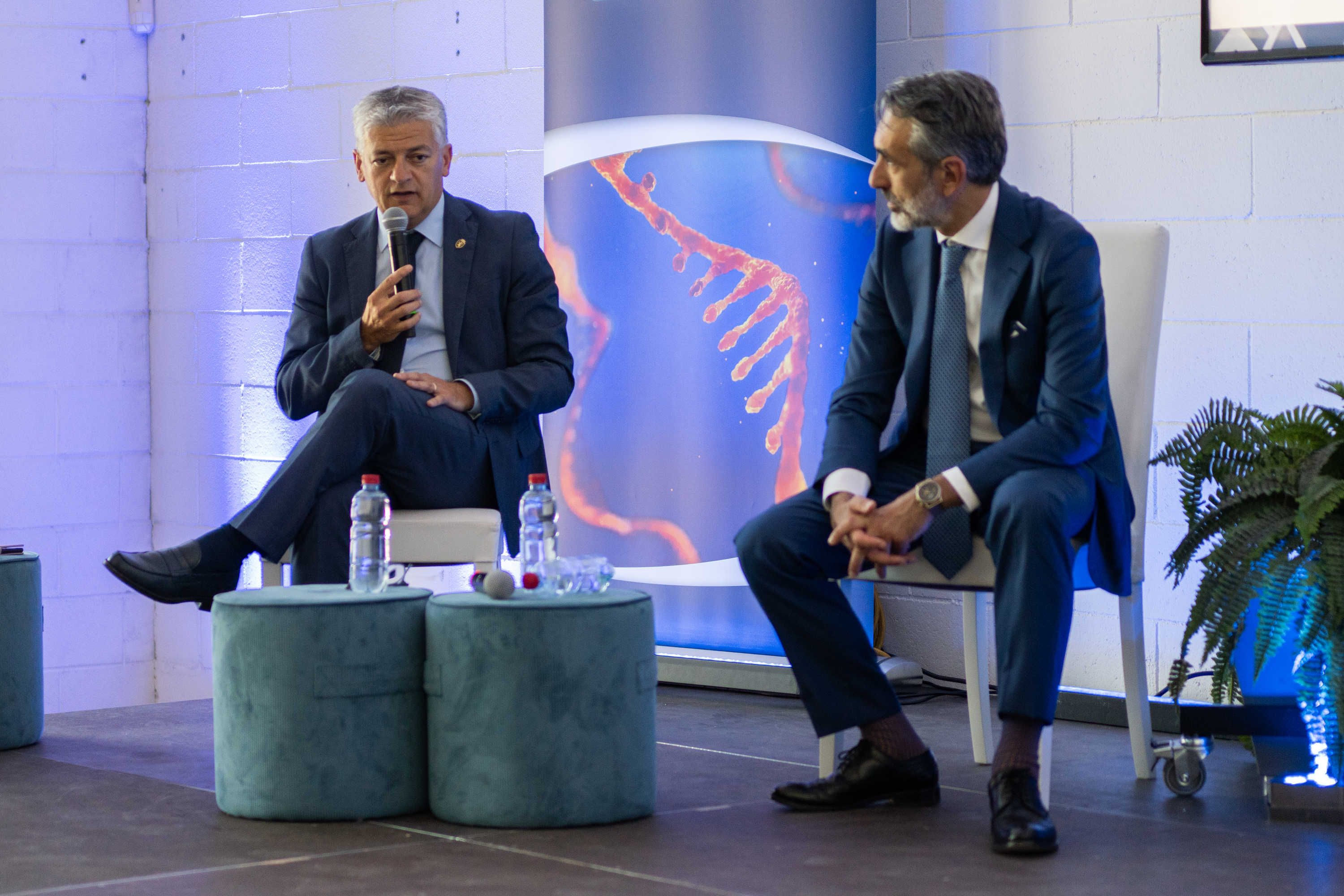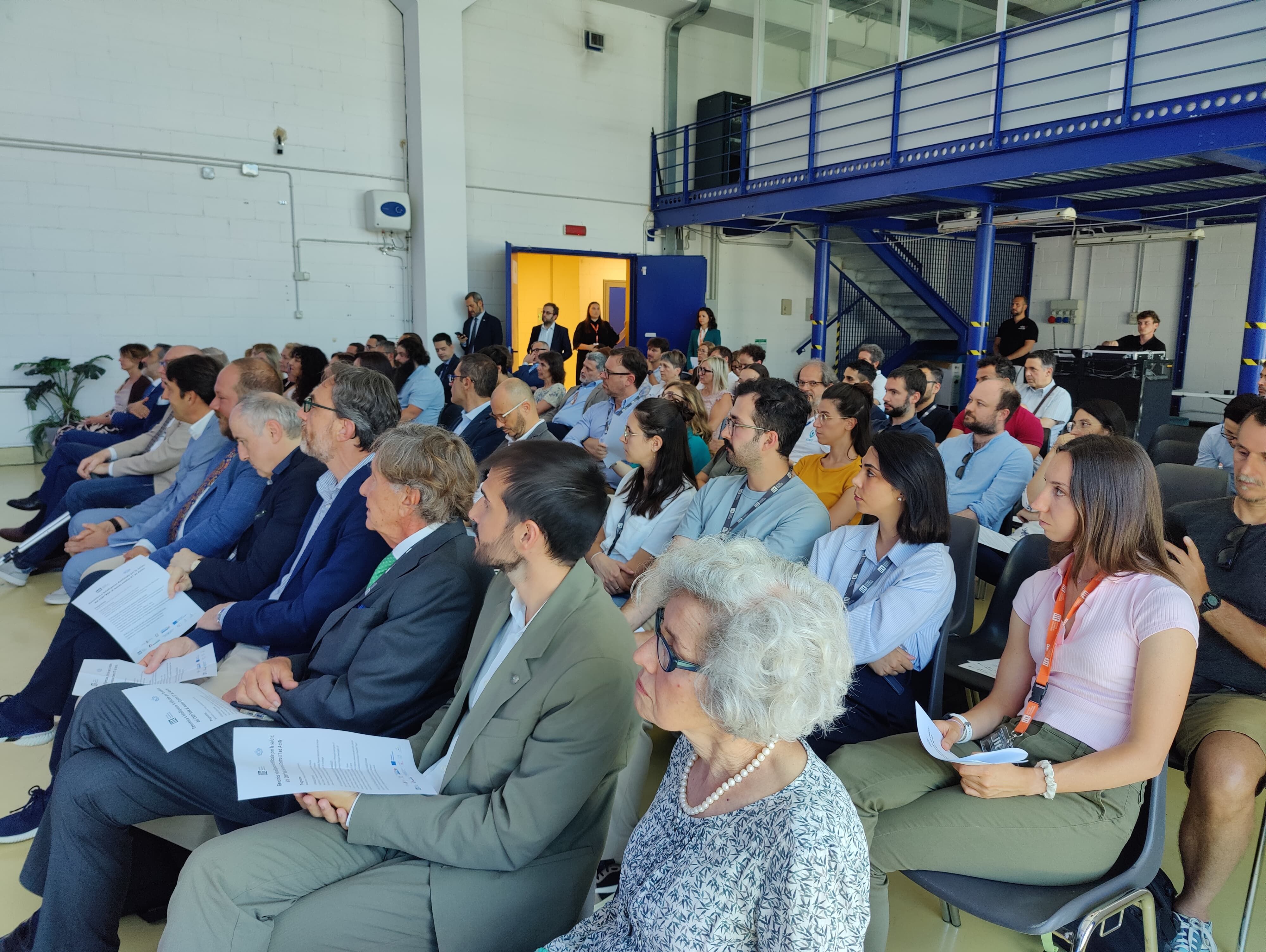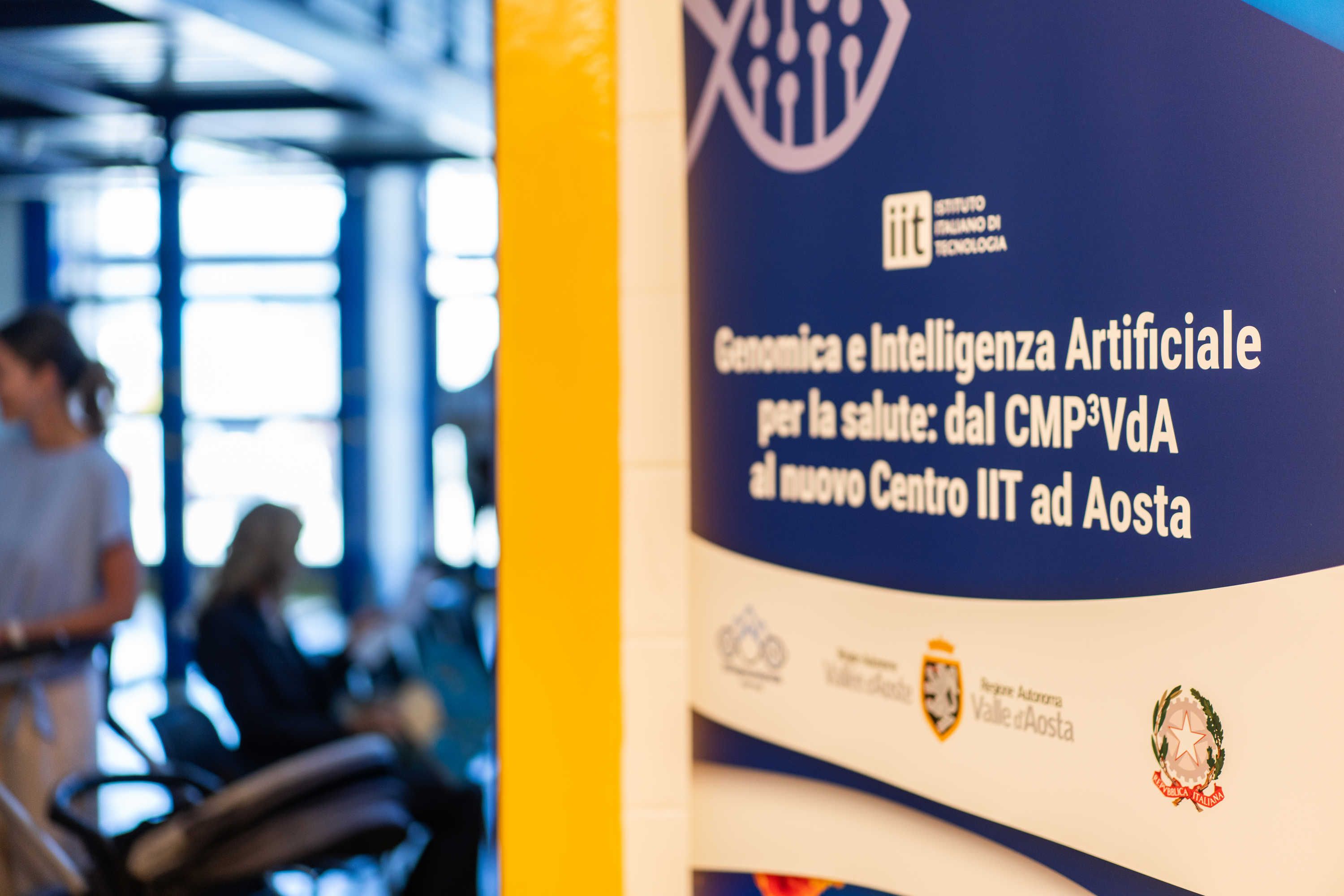
Genomics and Artificial Intelligence for Health
From CMP3VdA to the new IIT centre in Aosta
On 27th June 2025, the Italian Institute of Technology (IIT) presented its new Centre in Aosta today. This Centre is the culmination of the five-year 5000genomi@VdA project, coordinated by IIT, which led to the creation of a new research infrastructure for personalized, precision, and predictive medicine, and the sequencing of over 5,400 patient genomes in collaboration with hospitals in and outside Aosta Valley. The Centre becomes the 12th node in the Institute's national network, solidifying IIT's ability to promote new models of interaction with local entities, particularly IRCCS (Scientific Institutes for Research, Hospitalization and Healthcare), by integrating advanced genomics and artificial intelligence technologies into the prevention, diagnosis, and treatment of pathologies. The Centre aims for a broader, transparent, fair, and economically sustainable introduction of genomics into the National Health System. In addition to its work in genomics-driven diagnostics, the Centre will focus on Parkinson's disease and pancreatic cancer.
Representatives of the Autonomous Region of Aosta Valley attended the event: President Renzo Testolin, Vice President and Councillor for Economic Development, Training and Labour, Transport and Sustainable Mobility Luigi Bertschy. Following introductory remarks by IIT President Gabriele Galateri di Genola, the discussion covered the results achieved in the framework of the 5000genomi@VdA project and provided a presentation of the future objectives of the new IIT Centre by Scientific Director Giorgio Metta.
The Centre will be instrumental in advancing knowledge in clinical and computational genomics. Its activities will include: integrating genomics into National Health System, defining guidelines for operating as a diagnostic laboratory and managing clinical and genomic data, developing bioinformatics tools to identify genetic variants, improving Electronic Health Records (EHR) by including genetic information, creating dedicated IT infrastructures for genomic data management, and applying advanced technologies such as artificial intelligence (AI) and machine learning (ML) to analyze them. The Centre will also use and promote new genetic sequencing technologies and it will establish expert groups to evaluate genetic mutations, with the aim of developing personalized therapies, including RNA-based ones.
Dal progetto 5000genomi@VdA al nuovo Centro IIT
The 5000genomi@VdA project began in 2019, involving a research consortium led by IIT and composed of Università della Valle d’Aosta, A.O. U. Città della Salute e della Scienza di Torino, Fondazione Clément Fillietroz-ONLUS Osservatorio Astronomico della Regione Autonoma Valle d’Aosta, and Engineering D.HUB. Construction of the laboratories took place during the COVID-19 pandemic and finished in the first half of 2021. The Centre received accreditation from the National Health Service as a specialized laboratory in Medical Genetics and Genomics (with reference to neurodegenerative and oncological pathologies) in November 2023. The project results were presented by Stefano Gustincich, co-scientific coordinator of the project and Director of the IIT RNA Lab, Andrea Cavalli, co-scientific coordinator of the project and Principal Investigator at IIT, Giuseppe Cafiso, Technical Manager of Engineering D.HUB (Engineering Group), Jean Marc Christille, Director of Fondazione Clément Fillietroz-ONLUS Astronomical Observatory of the Autonomous Region of Aosta Valley, Anna Maria Alessandra Merlo, Professor of Corporate Responsibility and Rector's Delegate for school guidance and placement at Università della Valle d’Aosta, Antonio Amoroso, Technical Director of the Centre and former Director of the Transplant Department at A.O. U. Città della Salute e della Scienza di Torino, and Dr. Agostino Ponzetti, Medical Director at the Complex Structure of Oncology and Oncological Hematology at "Parini" Hospital.
The project sequenced over 5,400 genomes. This dataset includes samples from several key groups. Researchers sequenced genomes from oncological patients to develop a new personalized genomic panel of genetic alterations present in Aosta Valley. They are also examining genomes from families with children affected by autism spectrum disorders and other cognitive disorders to understand genetic origins and improve diagnostic and treatment approaches. A significant number of Alzheimer and Parkinson patients (1,700 for Parkinson alone) had their genomes sequenced to identify variants responsible for the onset or the susceptibility towards these pathologies. Finally, patients contributed with their genomes to help identify unrecognized genetic factors related to conditions that need transplant. Over 500 genomes come from healthy individuals of Aosta Valley origin to create a reference genome for the region, thanks to the collaboration of blood donor associations FIDAS and AVIS.
The Autonomous Region of Aosta Valley contributed to the 5000genomi@VdA project with structural funds from the European Union (ERDF and ESF) and regional funds for a total of 12.2 million euros over 5 years; the consortium co-financed other 9.7 million euros. Following the results, both the Aosta Valley Region – with approval from the Regional Council in December 2024 – and the Italian Institute of Technology – with validation from the Executive Committee in July and September 2024 – approved the stabilization of the research infrastructure as a new Centre of the IIT network in Aosta. IIT will invest 12 million euros ca. over 5 years. Project partners will continue to contribute to the activities of the new Centre through scientific collaborations, including joint laboratories. The Centre will continue ongoing studies, and it will focus its attention on Parkinson's disease and pancreatic cancer.




